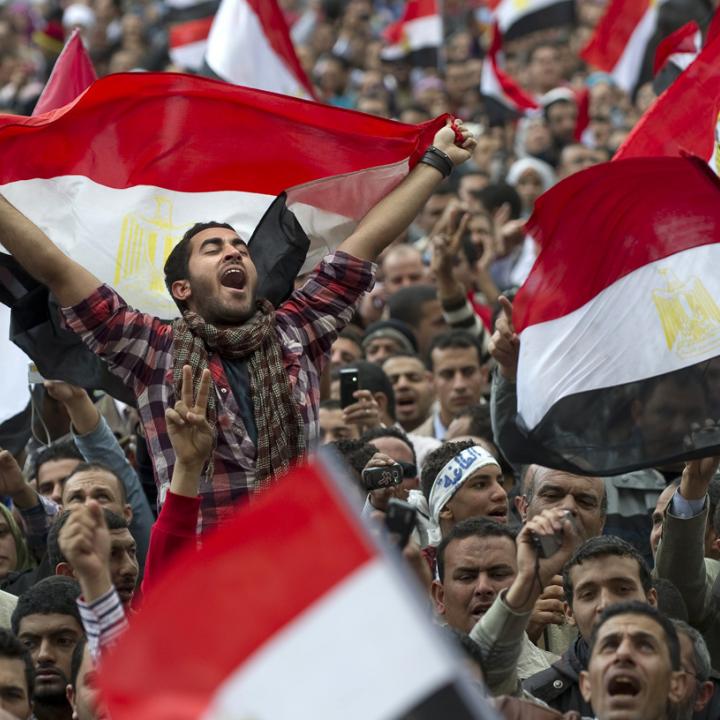

February 5, 2015
The fourth anniversary of the January 25 revolution quickly turned bloody as security forces killed at least eighteen people across Egypt, including Cairo. Violence has spread across the country, especially following the Rabaa al-Adawiyya massacre in August 2013, and President Abdul Fattah al-Sisi’s government has cracked down aggressively in response. In recent days, a large number of Egyptian soldiers and policemen in the Sinai Peninsula were the latest victims of a brutal terror campaign.
On the one hand, Sisi’s government is tenaciously repressive, in the sense that all state institutions – from the armed forces and police to the judiciary and the media – have joined together to erase the gains of the 2011 revolution. On the other hand, terrorists are trying to undermine the morale of the armed forces and more importantly, thwart any attempt by the state to boost the economy, as part of an effort to drive out foreign investment ahead of the economic conference scheduled for March. Both sides are single-mindedly pursuing their strategies and are placing victory in this conflict above the interests of the country and the average Egyptian citizen.
Today, de-escalation is in Egypt’s best interest. Egyptians must pressure both sides to engage in dialogue and offer concessions since the current situation is harmful to everyone in the country. However, to open the way for dialogue, both sides need to correct their course of action. The Sisi government needs to relax its grip on the opposition and promote justice, which has been waylaid since the removal of former president Muhammad Morsi. The Interior Ministry needs to bring to justice those who killed Shaimaa al-Sabbagh and other peaceful protestors last month, before the anniversary of January 25, and release a number of political activists and journalists. The Sisi government must also make real political, constitutional, and legislative reforms. It must realize that the peaceful opposition only aims to strengthen his government, not undermine it. So long as this opposition does not harbor any violent agenda, it cannot be accused of trying to overthrow the new regime.
Meanwhile, Sisi’s opponents – including the Muslim Brotherhood – must offer good-faith initiatives, such as renouncing terrorism in no uncertain terms. The Muslim Brotherhood needs to reconsider its ideology, learn from its mistakes, and offer a model consistent with the current political reality. This includes reconsidering its demand that Morsi return to power or that the group resumes its activities as a political party, whether on an exclusionary basis or representing a majority.
All sides – the government, the Muslim Brotherhood, and both liberal and Islamist political forces – need to sit down to try and defuse the current crisis. If successful, then perhaps they can hold reconciliation meetings, to be attended by non-partisan figures with no ideological agenda. The thrust of these discussions should be to forget the past and turn a new page, as a way to put the interests of Egypt first. Repression can only further inflame the situation; it also helps foster extremism. Egypt’s stability is at risk. If the two sides cannot reach a rapprochement, then a new popular revolution will lead to both of their downfalls.


